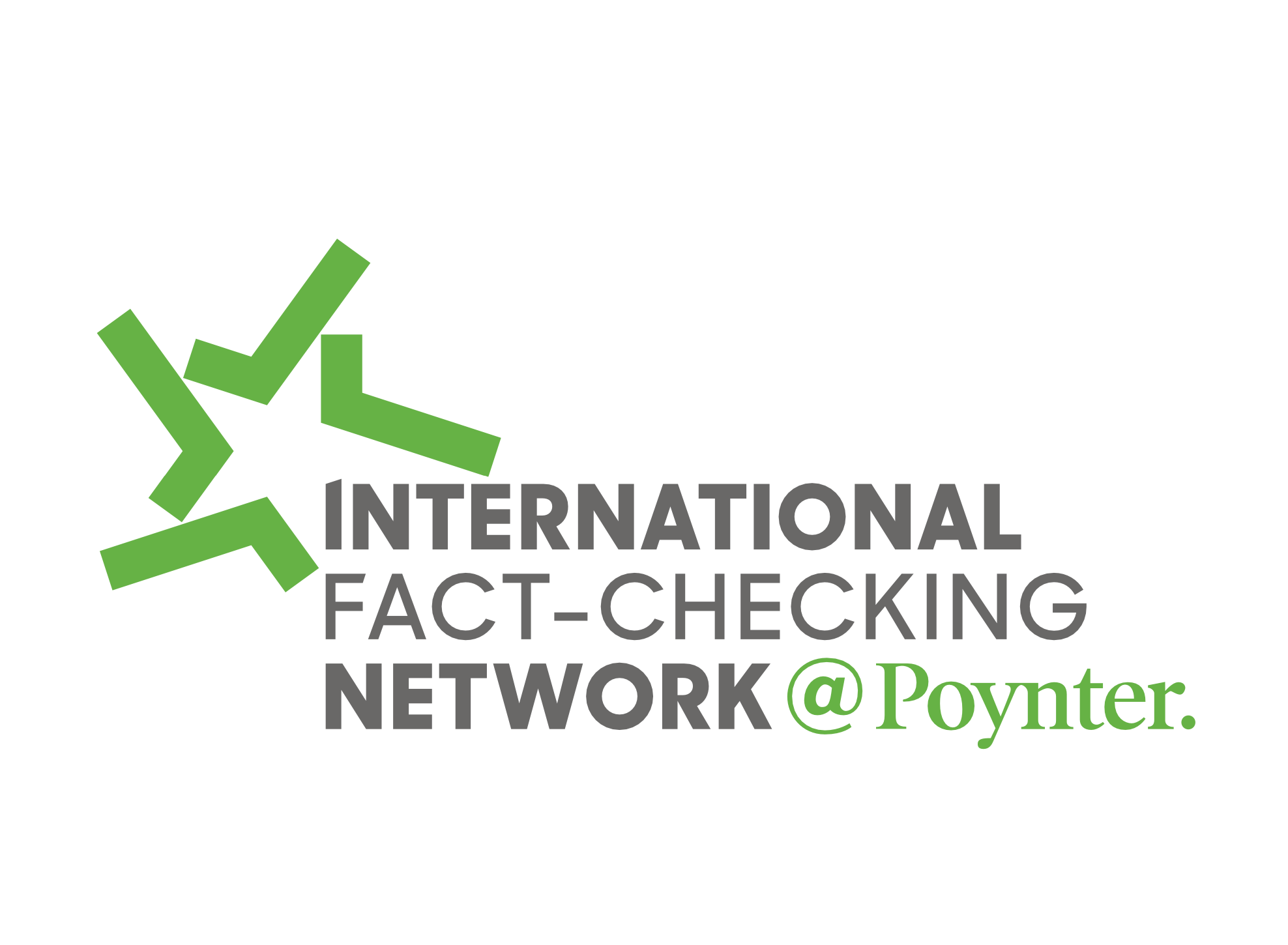The Poynter Report is our daily media newsletter. To have it delivered to your inbox Monday-Friday, click here.
Editor’s note: Tom Jones is out of the office this week. So we turned to the Poynter staff for a roundup of what we’re grateful for in media this season.
What are your journalism blessings? Email us at news@poynter.org or tweet to @poynter with your response and we’ll include them in tomorrow’s newsletter.
Poynter’s Thanksgiving gratitude list
Kristen Hare, local innovation reporter:
This year, I’m thankful for the local journalists who keep grinding every single day. I’m thankful for the journalists in chain newspapers, like people at McClatchy, Gannett and the former Gatehouse, who are unsure about their future but still show up for their communities. I’m thankful to the journalists who have started local newsrooms, including in Kansas and Mississippi, filling in space that traditional news has left. I’m thankful to student journalists, like those at KU, who are finding new ways to bring local news back. And I’m thankful to local newsrooms that refuse to quit, like the Albany Times-Union, which spent 16 years covering the cult down the street.
Alanna Dvorak, interactive learning producer:
I’m grateful for Deadspin (RIP) and the great journalists that made it what it was. For years, I visited that site because of its irreverent take on sports and willingness to look at the social, cultural and, yes, political implications of sports. Diana Moskovitz produced fantastic investigative work; Laura Wagner was always willing to call out journalism organizations that mistreated or otherwise took advantage of employees; and Drew Magary remains one of the most engaging and hilarious writers on the web. And while I’m grateful for what Deadspin was, I am also grateful for the reporters who were willing to stick to their principles. I hope in the future more journalists will be able to garner the support and financial ability to do the same if the situation requires it.
Ren LaForme, digital tools reporter:
This year, I’m grateful for a lot of things: the righteous sabotage of a media company mis-run by “the adults in the room,” journalists being dorks on TikTok, and anything and everything that Taylor Lorenz writes. But mostly I’m grateful for the nameless masses who we’ll never hear from and never remember because they take one moment to think about the consequences of their actions before they tweet. Twitter often feels like a game of Fortnite — someone is always just a half-second away from knifing you in the back for fake internet points (is that how Fortnite works?). So here’s to the folks who deleted words that punched down instead of up, left that unnecessarily snarky tweet in their drafts or logged off completely and read a book or something. I’m grateful for you, restraint-haver.
Alex Mahadevan, MediaWise senior multimedia reporter:
I’m thankful for all of the weirdos doing weird journalism in weird ways — especially in an industry in which hedge fund owners threaten to stamp out all weirdness in pursuit of profit. Last month, Slate senior writer Ashley Feinberg, an expert in everything Extremely Online, exposed Sen. Mitt Romney’s burner Twitter account. Feinberg dug into the hell world of Twitter to surface Romney’s account, which he puppeted using the name Pierre Delecto. Feinberg has been a consistent voice helping readers understand the terrifying state of the Internet. We may all have brain worms from being Online, but at least we know why and how it’s happening thanks to Feinberg.
Wendy Wallace, director of advancement:
I’m grateful for creative ways to pay for journalism. Major national funders pool their money to pay for journalism through the NewsMatch project and the ambitious Teach for America spinoff Report for America. News industry nonprofits like the Local Media Association, Lenfest Institute and Poynter organize conferences, workshops and innovation tours and produce newsletters to give newsrooms of all sizes the chance to learn what’s working and how it might apply to them. The Guardian and other outlets find clever ways to nudge readers to pay for the content they value so much. And I’m especially grateful to the 1 in 5 individuals who subscribe or donate to a local news organization and the 3 in 5 who consider their local newspaper an important symbol of civic pride.
Barbara Allen, managing editor, poynter.org:
My favorite newsletter this year has become the Muck Rack Daily, which hits my inbox right after lunch and often gives me the insight — and frankly, laughs — to help me finish my day strong. This “daily digest of journalism, written by journalists” provides a list of the best stories in journalism for that day, whether they are serious investigations or long-form narratives. The best part is that the authors pepper each item with A+ gifs and clever Twitter responses from other journalists and stakeholders. Their subject line game is strong as well, with each day’s a line from a notable tweet — those reallllllly make you want to click them. Some of my recent favorites:
‘Drugs. Hell Yeah.’
‘What’s that snappy Latin phrase?’
‘The investigations are coming from inside the House’
How could you not want to open those?
Sara O’Brien, multimedia designer
I’m grateful for tools that push me out of my design comfort zone. When you’re busy, it’s easy to rely over and over on the same old software and programs you’ve always used, (I’m looking at you, Adobe Creative Suite!). But when given the time to explore different and fun ways to create, new tools can add an exciting edge to your work. This year, one of those tools has been befunky.com. It has allowed me to easily and efficiently give a fresh new look to our Cohort newsletter here at Poynter. Also, as a video editor, tools like otter.ai have been a huge time saver for me. Rather than sift through hours of video for the right sound clips, this tool transcribed my audio so that I was able to go through the physical scripts as needed. This was an enormously helpful tool for me during the process of creating our annual fundraising video on a strict timeline.
Daniel Funke, PolitiFact reporter:
I’m thankful for the continued success of The Bitter Southerner, an online web magazine dedicated to telling long-form stories about the South. Launched in 2013 by Chuck Reece, a fellow University of Georgia and Red & Black alumnus, The Bitter Southerner doesn’t write about most Americans’ stereotypical view of a backwards, racist, gun-toting South — “It is about the South that the rest of us know: the one we live in today and the one we hope to create in the future.” One week the site will publish a story about the origin of Nashville hot chicken, only to write about drag queen bingo in Tallahassee the week after. The Bitter Southerner relies on freelancers, including authors like Charles McNair and Daniel Wallace, and makes money through a network of contributing Family Members and an online general store. Even if you don’t care about reading layered, beautifully produced narratives about the most interesting region in the United States, you might find a T-shirt or two you like — and you’ll support thoughtful, stereotype-bashing journalism in the process.
Coming tomorrow in Part II: Our readers’ Thanksgiving list. (Send your gratitude to news@poynter.org.)
Have feedback or a tip? Email Poynter senior media writer Tom Jones at tjones@poynter.org.
Upcoming Poynter training:
- How Any Journalist Can Earn Trust (workshop). Deadline: Nov. 29.
- Leadership Academy for Women in Media (seminar). Deadline: Nov. 30.
Want to get this briefing in your inbox? Sign up here.







